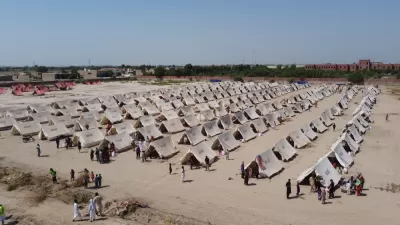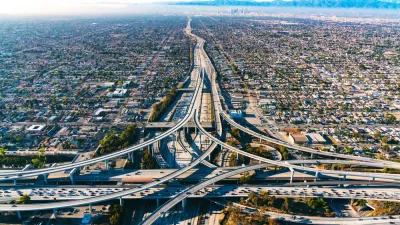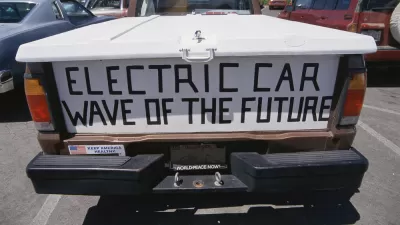"The United Nations has set two huge energy-related goals for the coming century," says Brad Plumer. While bringing electricity to 1.3 billion people without it and curtailing fossil fuel use seem to be at odds, the U.N. has a plan to achieve both.
"Last year, Secretary-General Ban Ki Moon unveiled his “Sustainable Energy for All” initiative, which aims to bring electricity to 1.3 billion people by 2030, and double the amount of renewable energy in the world, and double the pace at which the world gets more energy-efficient," reports Plumer. "The estimated price tag? Some $48 billion per year, financed by the private sector, governments and the public sector."
"In theory, assuming this plan was doable, it could be compatible with those broader climate goals. At least, that’s the conclusion of a recent study in Nature Climate Change, which found the world would still have a good chance of staying below 2°C if it achieved all three of these goals by 2030. (But, the modelers caution, those three goals wouldn’t be sufficient; limits on carbon emissions would likely also prove necessary. See Alex Kirby’s write-up for more detail.)"
"That said, other experts are skeptical that tackling climate change and energy poverty at once is as easy as it sounds," adds Plumer. "Roger Pielke Jr., an environmental studies professor at the University of Colorado, has pointed out that the international community’s definition of 'modern energy access' tends to be pitiful — it means providing people with a mere 2.2 percent of the energy that the average American uses."
FULL STORY: Can the world fight climate change and energy poverty at the same time?

Maui's Vacation Rental Debate Turns Ugly
Verbal attacks, misinformation campaigns and fistfights plague a high-stakes debate to convert thousands of vacation rentals into long-term housing.

Planetizen Federal Action Tracker
A weekly monitor of how Trump’s orders and actions are impacting planners and planning in America.

San Francisco Suspends Traffic Calming Amidst Record Deaths
Citing “a challenging fiscal landscape,” the city will cease the program on the heels of 42 traffic deaths, including 24 pedestrians.

Defunct Pittsburgh Power Plant to Become Residential Tower
A decommissioned steam heat plant will be redeveloped into almost 100 affordable housing units.

Trump Prompts Restructuring of Transportation Research Board in “Unprecedented Overreach”
The TRB has eliminated more than half of its committees including those focused on climate, equity, and cities.

Amtrak Rolls Out New Orleans to Alabama “Mardi Gras” Train
The new service will operate morning and evening departures between Mobile and New Orleans.
Urban Design for Planners 1: Software Tools
This six-course series explores essential urban design concepts using open source software and equips planners with the tools they need to participate fully in the urban design process.
Planning for Universal Design
Learn the tools for implementing Universal Design in planning regulations.
Heyer Gruel & Associates PA
JM Goldson LLC
Custer County Colorado
City of Camden Redevelopment Agency
City of Astoria
Transportation Research & Education Center (TREC) at Portland State University
Jefferson Parish Government
Camden Redevelopment Agency
City of Claremont





























